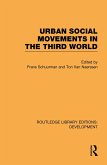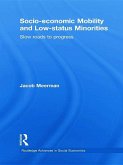The scope of this research is to analyse how contemporary social movements have contributed to enabling and recognising rights for minority groups within a multicultural and pluralist state such as Brazil. Minority groups, for the purposes of this study, are those made up of people in vulnerable circumstances, i.e. they constitute a disadvantaged group that lacks material and legal assistance. The main objective of social movements is to compel the state to make their rights viable and effective. Throughout its history, Brazil has experienced various struggles and conquests to achieve what is now known as the social and democratic rule of law. Social movements have been instrumental in building legislation that is in line with current needs and consistent with the reality of society.
Bitte wählen Sie Ihr Anliegen aus.
Rechnungen
Retourenschein anfordern
Bestellstatus
Storno








